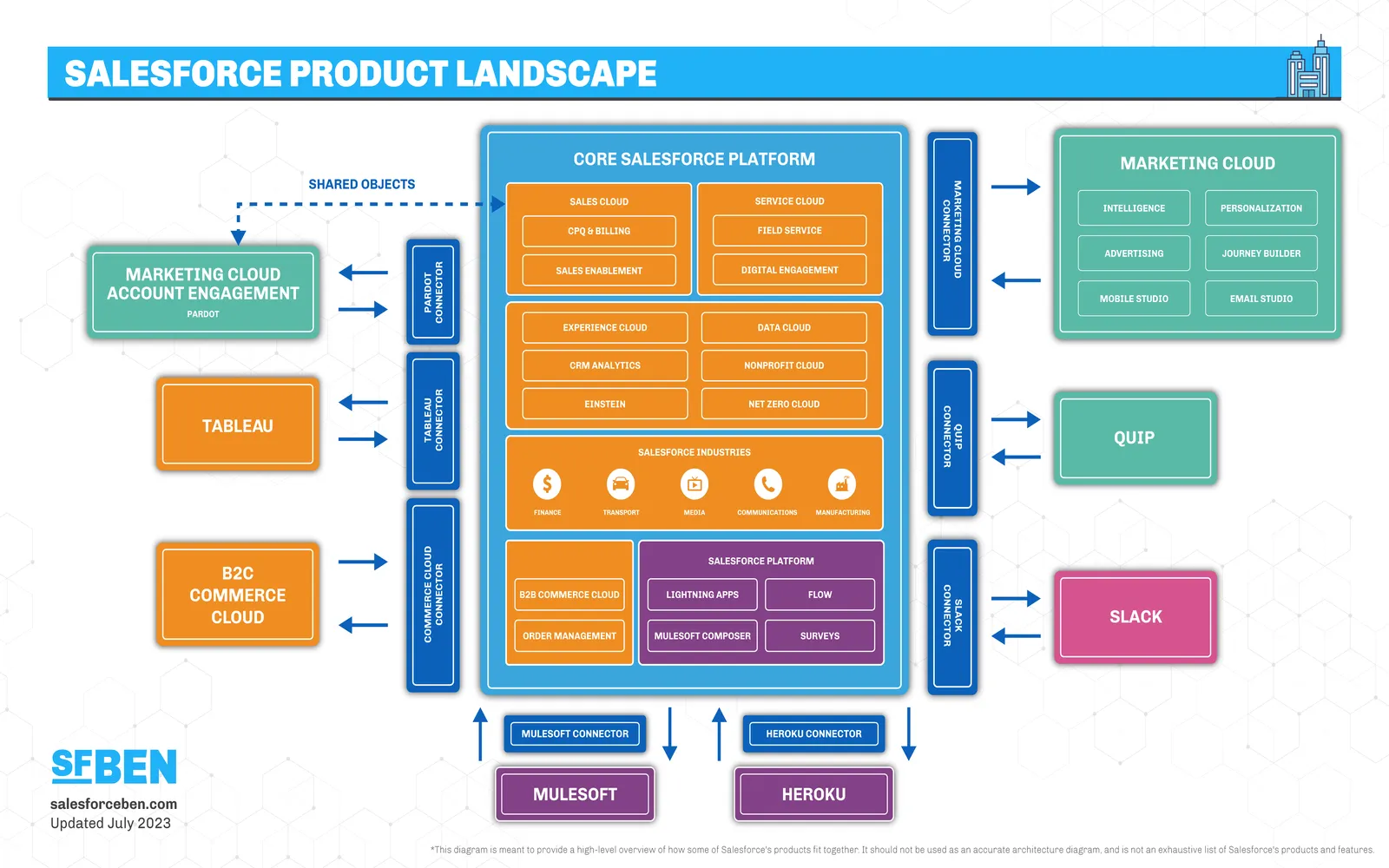Understanding Salesforce Products in Sales and Marketing
Salesforce offers a suite of products that enhance the way sales and marketing teams operate, improving efficiency and collaboration. Teams leverage these tools to streamline processes, increase productivity, and ultimately drive revenue. Below, we delve into how sales and marketing teams utilize Salesforce products, highlighting key features and functionalities that make them indispensable.
Salesforce CRM: The Backbone of Sales
At the core of Salesforce is its Customer Relationship Management (CRM) system. This powerful tool allows sales teams to manage customer interactions, track leads, and analyze sales performance. Here’s how sales teams typically use Salesforce CRM:
| Feature | Usage |
|---|---|
| Lead Management | Sales teams can capture, qualify, and manage leads effectively, ensuring no opportunities are missed. |
| Sales Forecasting | Predictive analytics help teams estimate future sales, enabling better planning and resource allocation. |
| Reporting & Analytics | Custom reports and dashboards provide insights into sales performance, helping teams make informed decisions. |
By utilizing these features, sales teams can prioritize leads, track their progress, and optimize their sales strategies. This leads to improved conversion rates and revenue growth.
Marketing Automation with Salesforce Marketing Cloud
Salesforce Marketing Cloud equips marketing teams with tools to automate campaigns, personalize customer journeys, and analyze marketing effectiveness. Here are the primary functions of Marketing Cloud:
| Feature | Usage |
|---|---|
| Email Marketing | Marketers can create targeted email campaigns based on customer behavior and preferences. |
| Social Media Marketing | Manage and analyze social media campaigns to engage customers and drive traffic. |
| Customer Journey Mapping | Visualize and optimize customer interactions across various touchpoints for better engagement. |
With these capabilities, marketing teams can deliver relevant content to the right audience at the right time, significantly improving engagement and conversion rates.
Collaboration Between Sales and Marketing
One of the standout features of Salesforce is its ability to foster collaboration between sales and marketing teams. The integration of Salesforce CRM and Marketing Cloud allows for seamless communication and data sharing.
Key benefits of this collaboration include:
- Unified Data: Both teams have access to the same customer data, ensuring consistency in messaging and outreach.
- Lead Scoring: Marketing can score leads based on engagement, enabling sales to focus on the most promising prospects.
- Feedback Loops: Sales can provide insights into lead quality, allowing marketing to refine their strategies accordingly.
This synergy maximizes the effectiveness of campaigns and sales efforts, leading to higher overall performance.
Analytics and Reporting: Driving Data-Driven Decisions
Both sales and marketing teams rely heavily on analytics to inform their strategies. Salesforce provides robust reporting tools that help teams track performance metrics in real-time. Here’s how analytics enhances decision-making:
| Metric | Importance |
|---|---|
| Conversion Rates | Understanding which leads convert can help refine targeting strategies. |
| Campaign Performance | Analyzing which campaigns yield the best results can inform future marketing efforts. |
| Customer Lifetime Value (CLV) | Identifying high-value customers helps prioritize resources and tailor offerings. |
With access to comprehensive analytics, teams can pivot strategies quickly and effectively, ensuring they remain competitive in a dynamic market.
Integrating Third-Party Tools with Salesforce
Salesforce's open architecture allows teams to integrate various third-party applications, further enhancing its capabilities. Popular integrations include:
- Email Marketing Tools: Connect with platforms like Mailchimp for enhanced email campaign management.
- Social Media Management: Tools like Hootsuite can be integrated for streamlined social media engagement.
- Customer Survey Tools: Collect feedback through platforms like SurveyMonkey to inform product and marketing decisions.
These integrations provide additional functionality and allow teams to tailor Salesforce to their specific needs, maximizing their productivity.
Conclusion
Salesforce products are essential for sales and marketing teams looking to enhance their effectiveness and drive growth. By leveraging the CRM, Marketing Cloud, and analytical tools, teams can work more efficiently, collaborate seamlessly, and make data-driven decisions. As organizations continue to adapt to changing market dynamics, utilizing Salesforce will be crucial for staying competitive and achieving long-term success.





